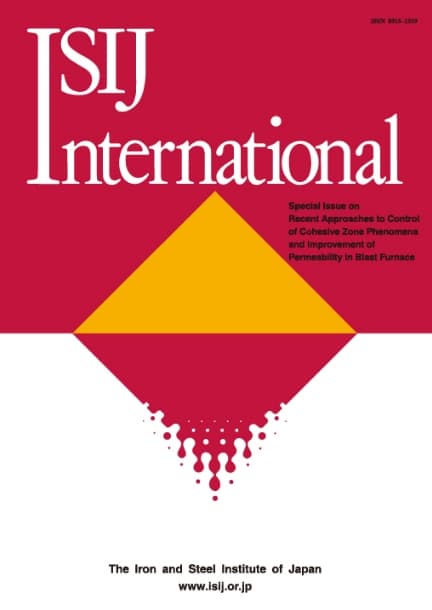Rate of Reduction of Ferric and Ferrous Oxide from Calcia-Silica-Alumina Slag by Carbon in Liquid Iron
David E. Woolley, Uday B. Pal
pp. 103-112
Abstract
Reduction of ferric and ferrous oxide from calcia-silica-alumina slag by carbon in liquid iron has been studied. A base slag (48%CaO-40%SiO2-12%Al2O3) containing iron oxide (less than 16 wt% total iron) was reduced by carbon dissolved in a liquid iron bath (approx. 4 wt% C). The temperature was in the range 1 400-1 600ºC. The reaction rate was calculated from measurements of the total inlet gas flow rate and the CO concentration in the outlet gas stream. Slag and metal samples were taken in some experiments. Two observations are reported: the apparent rate constant decreases as the reaction rate decreases; and most ferric oxide (Fe2O3) is reduced before any ferrous oxide (FeO) is reduced. The authors conclude that the apparent rate constant is the mass transfer coefficient for ferrous cations in the slag phase, and that the overall reduction rate is determined by the mass transfer rate of ferrous cations when only ferrous oxide remains in the slag (i.e. all the ferric oxide has been reduced).
Readers Who Read This Article Also Read
ISIJ International Vol.39(1999), No.2
ISIJ International Vol.39(1999), No.2










